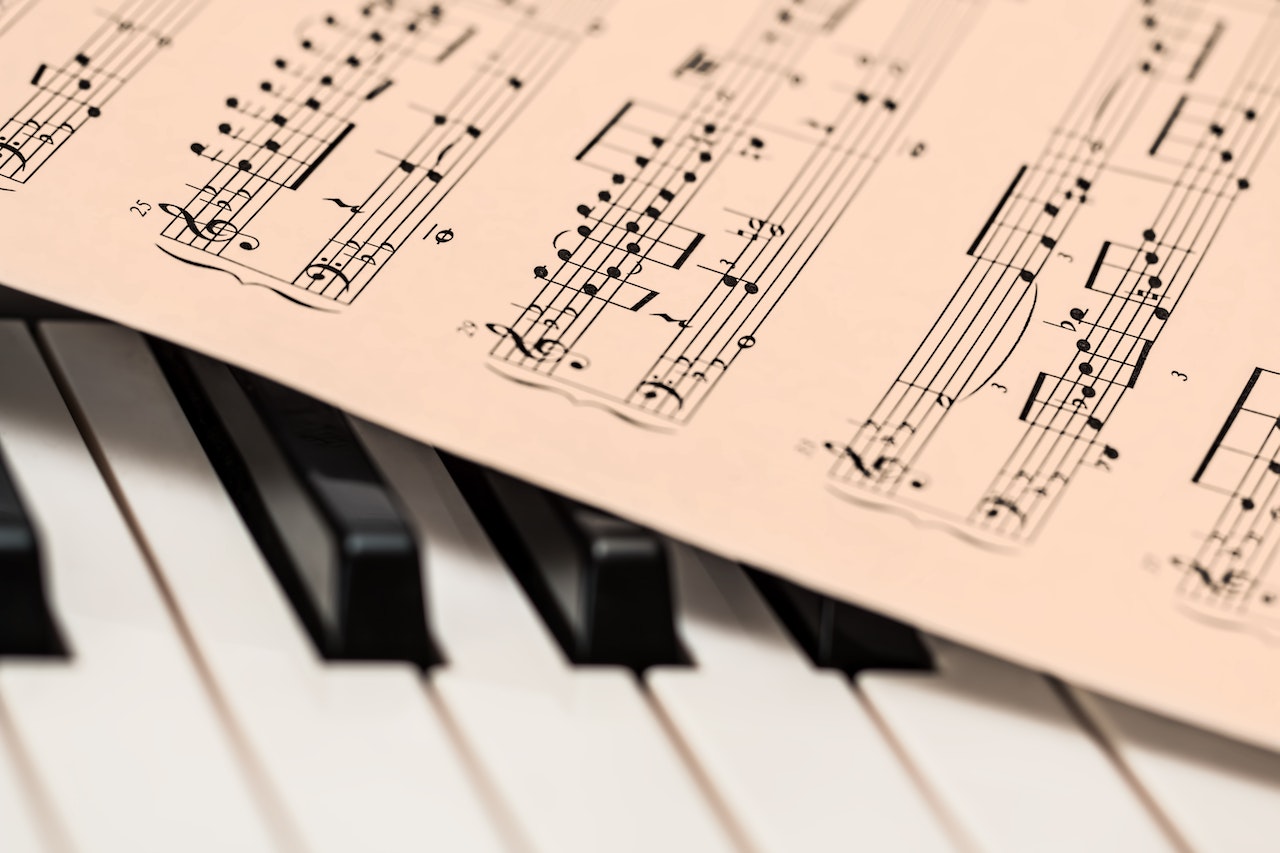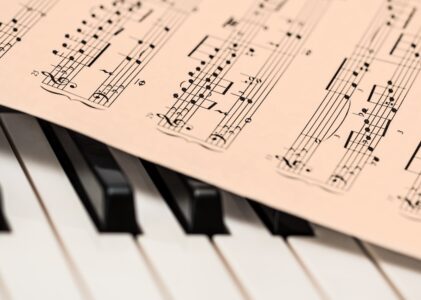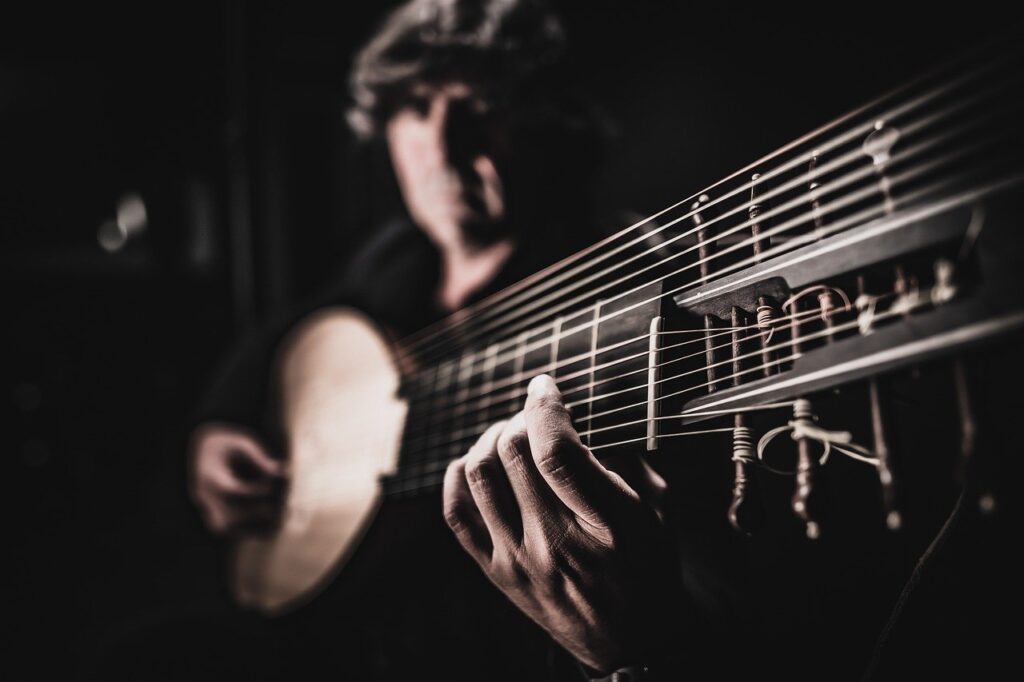The following essay relates the history of music in the Western European tradition to the evolution of consciousness as described by Rudolf Steiner and makes no claim to be more than a sketch of certain aspects.
Music history as taught in my younger days (the 1940’s) concerned itself largely with composers from Germany, Austria, France, Italy and, sparingly and somewhat grudgingly, England. England got in because Henry Purcell decided to incarnate there and Hӓndel changed his name to Handel. Books like Percy Coles’s The Growth of Music would have been altered very little if Portugal, Spain, Switzerland, Belgium, the Netherlands and the whole of Scandinavia had been left off the map, and the standard texts would have been only a few pages shorter if they had started in the middle of the sixteenth century and ended in 1914.
These were not the only serious omissions. It was customary to speak of a common language existing among musicians for large parts of the sixteenth, seventeenth, eighteenth and nineteenth centuries, but this way of talking is accurate only if we confine our observations to professional musicians writing for the church, the aristocracy and, more recently, the middle class, and leave out the non-European world altogether. What went on among the underprivileged, the farm laborers and the “rude mechanicals” is a story that I should dearly like to know; but to my knowledge it has not been told, and perhaps never will be, for lack of hard copy, at least in its earlier stages. It is true that we have a wealth of folk songs, but most were collected only towards the end of the nineteenth century or later, and what they had been through in order to survive until that point no one really knows.
The traditional way of telling the history of music developed as it did because the people who told it sincerely believed that Western European art music of the Bach to Brahms period was one of the loftiest of all the creations of the human mind and spirit, outstripping by far all that had emerged in earlier times and other places; and because most of them had little knowledge of any other kind of music. Over the past sixty years the situation has changed radically. We have found that mediaeval and Renaissance music can speak to us directly and refreshingly, once we are tuned to it, and Europeans and Americans have become deeply interested in the music of nations all round the world. Jazz and pop cultures have existed long enough to have their own histories and “Bach-to-Brahms” culture is probably almost as foreign to young Europeans and Americans as it is to people from any other part of the world – perhaps more so, since enthusiasm for what is loosely known as “classical” music has sprung up in many Asiatic countries. There are excellent reasons for studying the process that took us from the chants and modalities of the early Middle Ages to the tonal and motivic elaborations of the Bach-to-Brahms period and thence to the comparative chaos of the twentieth century, but it is not a good idea to speak of it as though it were the only show in town. We play, sing and listen to the music because it is wonderful and we study its history because it is fascinating; and if we are students of Rudolf Steiner, we find that the progressive exploration of tonality and structure in European music is intimately connected with the evolution of human consciousness. That is what this essay is about; the fact that some of us still think that the old pedagogues had a point is probably neither here nor there.
Please understand that from this point, when I talk about the history of music, I am referring to the sequence of transitions that can be traced from classical Greek times to mediaeval chant, later mediaeval and Renaissance composition, the European baroque and classical-romantic periods and post-romantic music mostly from Europe and America. I wish to stress again that this selection does not constitute a value judgement or imply that nothing much has been going on elsewhere.
(ii)
Starlings – a Discussion Not Strictly Necessary
In some respects the history of music seems to resemble more recent versions of the history of our planet, long periods of relatively slow change being punctuated by short periods of energetic upheaval. The great period of polyphonic1 music based on the mediaeval modal system came at the end of more than half a millennium of steady exploration. In the late sixteenth century some of its most famous representatives, such as Palestrina, Byrd and Victoria, were still alive and busy but the Baroque revolution was already in progress and it took only a few years for European musical circles to embrace the new styles and abandon the old. In the 18th century, while Bach was busy with The Art of Fugue and Handel was composing Messiah,the light and pretty music of the galant style was displacing the learned complexities of the late baroque and the Mannheim School2 was in full swing. The dominance of late romantic sentiment and its large-scale musical expression in the works of composers from Bruckner and Brahms to Tchaikovsky and Mahler came to a comparably abrupt end in the early years of the twentieth century, but not because the listening public succumbed to the charms of the new music. Composers whose works seemed to continue the romantic tradition soon came to be regarded by the avant garde and the intellectual establishment as dinosaurs, even if that word wasn’t specifically used. Being something of a dinosaur myself, I cannot forbear to point out that dinosaurs have recently turned out to have been considerably more intelligent than had generally been thought. I have no doubt that a few of them survived the cataclysm that destroyed their race in the geological twinkling of an eye, and that these were the smartest and the most versatile ones.
Gradual change has occurred too, and it would be only a minor simplification to say that when it has occurred, at least since the early seventeenth century, it has been at the hands of individual composers, most obviously so in the cases of Haydn and Beethoven. Haydn’s early works seem primitive to us only in relation to his later ones, which are incomparably more complex and sophisticated, and carry a far stronger punch. In the course of a long life he effected what Sir Donald Tovey called “a Copernican revolution in musical form.” 3 Beethoven, far from being a revolutionary, adopted the techniques already brilliantly employed by Haydn and Mozart and, after a slow start, spent the rest of his life evolving them to fulfill his own needs. There’s a big difference between “evolve” (verb intransitive) and “evolve” (verb transitive). The classical4 style didn’t evolve; Haydn, Mozart and Beethoven evolved it.
This is enough to put any analogy to Darwinian evolution out of court. One side of the Darwinian coin is, in Webster’s words, “the theory that all species of plants and animals developed from earlier forms by hereditary transmission of slight variations in successive generations.” These slight variations occur by chance but they may have “survival value.” The essence of Darwinism is that the process goes on involuntarily – no one makes intelligent decisions for it – “evolve” is a purely intransitive verb – but variations that occur in artistic work are usually known as innovations, and they don’t happen by chance. Later artists choose to adopt them, to ignore them or to do something entirely different.
The other side of the coin is the expectation that a species that enjoys favorable circumstances will happily go on reproducing itself, if not for ever, at least for very many generations. The starling is a very successful bird. In my lifetime there have been 76 new generations of starlings and no one has reported the slightest change in their taxonomy or instinctive behavior. It is true that they have shown some versatility in exploiting changing conditions, but a starling is still a starling is still a starling, and whoever is in charge of their reproduction seems to be very satisfied with the product. Unless there are significant changes in the environment or some stray high-energy particle causes a profitable mutation, we may expect the murmuration to continue unabated.5 “Starlings”, however, do not exist in the world of music even when the music is designed for mass consumption and the composers are falling over themselves and each other in the effort to repeat a success. The listening public is fickle and soon gets tired of the same old thing, and some kind of change is commercially essential. Composers, moreover, evolve along with their music, and if they repeat themselves too much they are no longer artists. Haydn produced twelve glorious and amazingly varied symphonies for the citizens of London; when he went home his powers of invention and innovation took new turns and he composed string quartets, masses and two great oratorios, but no more symphonies.
New music comes from the creative activity of composers or improvisers, not from the reproductive activities of older pieces of music; every composition is a new adventure.
(iii)
And then there’s Aristotle
If, following Rudolf Steiner, we believe that the human race has been around since before the beginning of time and has progressed under the guidance of higher beings, and if, further, we would like to paint an analogous picture of musical evolution, we may be tempted to suppose either that the hierarchies are using the composers as instruments to produce a set of evolving musical forms or that the composers are to music as the hierarchies are to people. What has actually happened to music over the last couple of thousand years doesn’t fit either of these scenarios. The symphony and the sonata do not resemble creatures on upward paths of evolution – there is no analogy to the successive development of the characteristic features of the human organism and nothing parallel to the functioning of reincarnation and karma. It may be tempting to suppose that Schoenberg’s Orchestral Variations is a reincarnation of Machaut’s Mon fin est mon commencement but we must acknowledge that whatever is whimsical or fanciful does have a tendency to be tempting.
You can transform a square into a rhombus simply by pushing a corner in the right direction, but you can’t turn an old symphony into a new one by any method whatsoever. Each new piece of music starts with a blank page. You may feel that although the new symphony doesn’t exist yet, the form does, and the form can be pushed around in various ways, so I should mention that in a previous essay I have done my best to justify the proposition that musical forms do not exist apart from actual pieces of music. This view of musical form is Aristotelian, not nominalistic. There is no archetypal symphony, but musical thought is immanent in the music and the form of the individual piece is the result of the thought.
It is the substance of music that is archetypal, not the outward form, and what has happened to music is an outgrowth of the whole process of human evolution. Sensibility, style and technique have changed over the centuries; these are expressions of consciousness, and consciousness is what evolves.
(iv)
Why Europe?
The fundamental fact behind this history is the decision of the hierarchies to allow the cosmic intelligence, of which they had the stewardship, to descend into minds of human beings, so that we might become responsible for our thinking and all that results from it, rather than experiencing our consciousness as something inseparable from its divine origin. The stage of this process that concerns us began three centuries before the birth of Plato (427 BC) and its effects can be seen in the sudden and otherwise unexplainable appearance, in the sixth century BC, of a small army of Greek philosophers all trying to understand the workings of mind and nature in rational ways rather than in terms of myth.6 This movement spread through Arabia, North Africa and Europe, but any tendency to regard the European races as a sort of historical elite, chosen by destiny to be in the forefront of developing consciousness, is deeply misplaced. There is no cause for rejoicing in being a member of a society which changed rapidly, incessantly and violently while others maintained many of their ancient ways – at least until the arrival of the Europeans. The thousands upon thousands of people uprooted by the agricultural revolution and enslaved by the industrial revolution certainly wouldn’t think so. The children who worked twelve hours a day and slept by their machines were not aware that they were part of the culture that had produced Bach and Beethoven, and would shortly produce Bruckner and Brahms. Neither were their parents. The proposal to become a laboratory for a large-scale experiment in changing consciousness might well have been defeated in a referendum held among Europeans some time in the early Middle Ages if they had known what it would lead to. It may have transformed the souls of all the men and women in the area of its operation, but the artistic manifestations that seem so important to us were matters only for the church and the upper classes.
This is not, however, to romanticize other ancient cultures. Wars for food, territory, wealth and power have taken place all over the world7 and the consciousness soul era8, which we entered at the end of the Middle Ages, is not merely a matter for Europe. We must remember that although, as Rudolf Steiner said, the descent of the divine intelligence was complete by the twelfth, thirteenth and fourteenth centuries, we are still struggling to understand our new capacities and find the best ways of using them. The process still has a long way to go and it involves all of humanity, but Rudolf Steiner’s ideas about the evolution of consciousness make sense of European and Eastern Mediterranean history in a way that no other concepts that I have encountered do, and understanding how events played out in Europe may be important far beyond the boundaries of that continent. To say that the story is deeply tragic is not to give in to pessimism. When the future is in the balance many people suffer beyond their deserts and die before their time. The appearance of historical inevitability does not make the suffering less real or that which induced it less evil, and we can make sense of brutal history only in terms of reincarnation and karma. And then there are the people whose job it is to pick up the pieces and carry on when the remains of all the heroes and villains have been carried away. Shakespeare’s tragedies have a tendency to end on a note of anticlimax – funeral arrangements for Brutus, coronation plans for Malcolm, a twenty-one gun salute for Hamlet and political plans for Fortinbras. The strong element of tragedy in the history of Europe is not absent from the history of its art. I sense that something in music has died, that history has moved on and that there may be no more musical giants of the kind who dominate our perceptions of the whole period from the Middle Ages to the twentieth century. My feeling is that to be a composer now is to be a lost child. But lost children have to cope somehow and they do eventually grow up, perhaps to be the stewards of a diminished kingdom.



